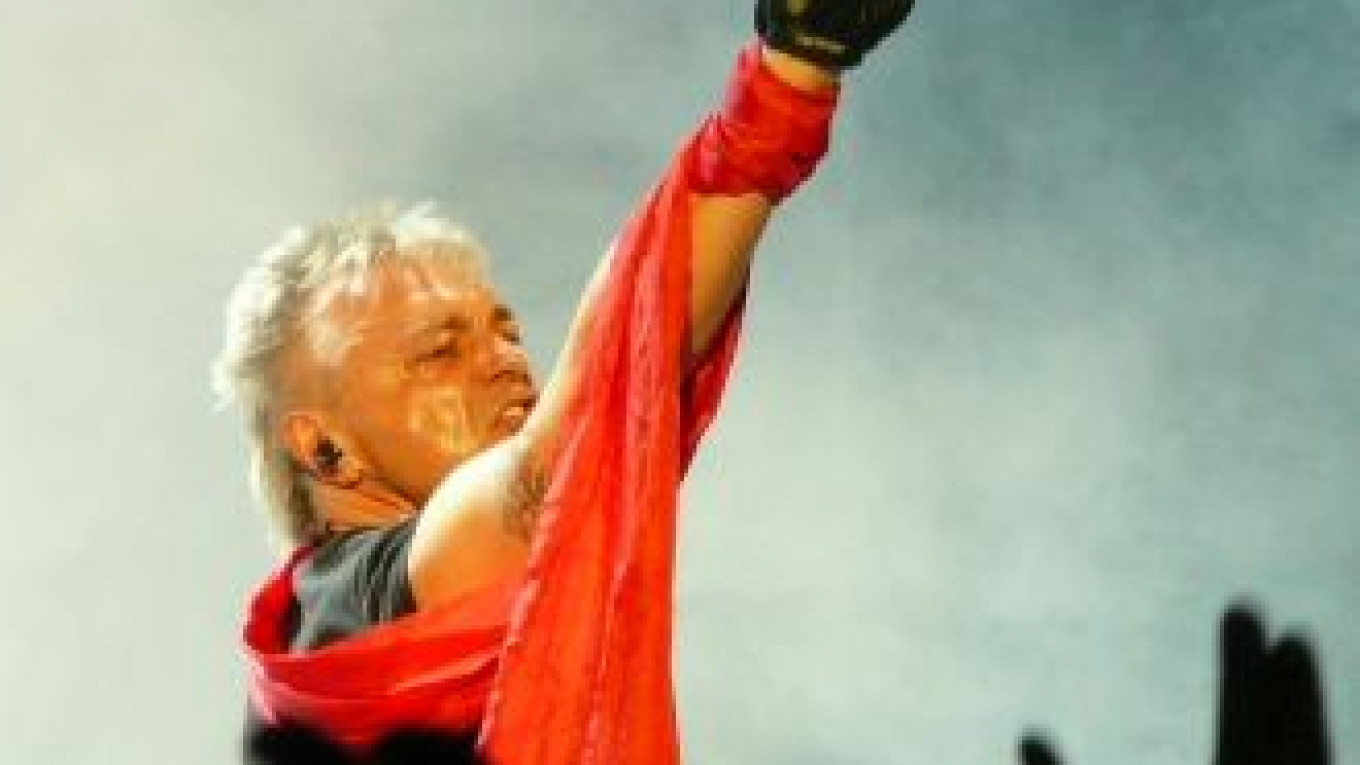During the mid 1980s, Konstantin Kinchev, a charismatic rocker, pitched his voice against the Soviet system, only to be labeled as a "fascist" by the Communist press.
Today, Kinchev has become an icon for youths with nationalist leanings on account of his songs calling for revenge against Russia's enemies and his stance on "multicultural" values, against which he backlashes in his songs.
Although Kinchev joined his band, Alisa, as early as 1983, 30 years later he is bringing his music to Gorky Park.
When he started out in Leningrad, it was known as the cradle of Russian rock-n-roll.
By 1998, many of Kinchev's songs sat on a par with fellow famed Russian musicians, such as Aquarium's Boris Grebenshikov, and the late-and-venerated rock star Viktor Tsoi, through their inclusion in a "Red Wave" album.
It featured underground bands from the Soviet Union and was the first release of the Russian rock music in America.
His band's prominence led to its inclusion, despite some controversial views.
"Multicultural language is trying to place us in the shadow theater. In the eyes of devils we are seen as an archaic folk which needs to be beaten," goes the lyrics of one of his songs "Day of Fire", written in 2012.
But as is the case with many rock idols of the 1980s, Kinchev is still more worshiped for his old songs than for his views. Many of them have a deep philosophical meaning too.
During the mid 1980s, Kinchev's band, named 'Alisa,' created a cult following among groups of young people, who came to be known as the 'Alisa Army.'
Anti-corruption blogger and rising star of anti-Kremlin protests Alexei Navalny, once said Alisa was among his favorite bands at that time.
He once said that during his teenage years he had painted his face with Alisa's logo and screamed Kinchev's songs while watching their concerts.
"Being a soldier of the Alisa Army is a certain lifestyle", said Vladimir Volkov 30, a Muscovite and a long time Kinchev fan.
Volkov, who keeps big poster of the musician in his flat, said he was always inspired by Kinchev's "magical and even devil like charisma."
Despite the long passage of time since the release of Alisa's 1989 hit, 'The Sixth Forester,' and over 20 albums released since starting, their trademark song "Aerobics" is still one of the most popular Russian-language compositions on Youtube.
Although the song bears the name of the popular sport, which was introduced to the Soviet public by American film star Jane Fonda, it talks about the "aerobics of resistance":
"We're almost able to laugh, we are almost talking about her. We almost did not avert our eyes," the song goes.
Kinchev said recently that one of the song's lines: "It is already impossible to graze us," is still of great relevance today.
Kinchev has made more than 30 albums since his time in Leningrad, but many of his old fans now say that his songs have changed for the worse.
In the last few years, he became popular among the religious right on account of his songs about Slavic brotherhood, he again was labeled as a Fascist — this time by the liberal critics.
Once a supporter of president Boris Yeltsin, Kinchev became disillusioned with democracy and turned into more of a fervent nationalist and an advocate of the state.
"I have seen many of leaders and Putin is the best. He saved Russia from near collapse," he said in 2007.
But he admitted that he started to change his mind soon after Putin decided to run for the third term.
"I still believe that during the 2000, Putin was useful for the country; we were on the stage of near collapse. ...[but] during his tenure, ethnic Russians were humiliated and forgotten in favor of national minorities," Kinchev said in an interview last year.
While Kinchev's old fan Volkov does not admire Kinchev's turn towards nationalism, he said the current songs had power and Kinchev was still in charge: "His messages are more powerful for his audience then messages by Putin and Medvedev taken together. He could have become a field commander and he already has an army," Volkov said.
Konstantin Kinchev's band, Alisa, plays May 31 in Gorky Park Green theater. The concert begins at 7 p.m.
Contact the author at abratersky@imedia.ru
Related articles:
A Message from The Moscow Times:
Dear readers,
We are facing unprecedented challenges. Russia's Prosecutor General's Office has designated The Moscow Times as an "undesirable" organization, criminalizing our work and putting our staff at risk of prosecution. This follows our earlier unjust labeling as a "foreign agent."
These actions are direct attempts to silence independent journalism in Russia. The authorities claim our work "discredits the decisions of the Russian leadership." We see things differently: we strive to provide accurate, unbiased reporting on Russia.
We, the journalists of The Moscow Times, refuse to be silenced. But to continue our work, we need your help.
Your support, no matter how small, makes a world of difference. If you can, please support us monthly starting from just $2. It's quick to set up, and every contribution makes a significant impact.
By supporting The Moscow Times, you're defending open, independent journalism in the face of repression. Thank you for standing with us.
Remind me later.






